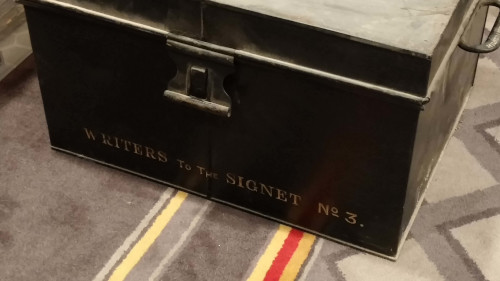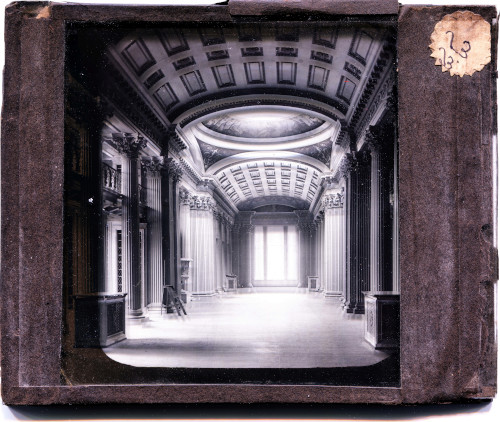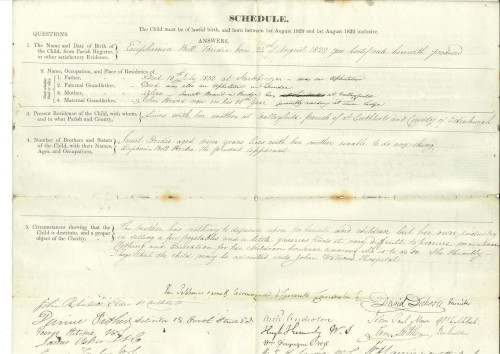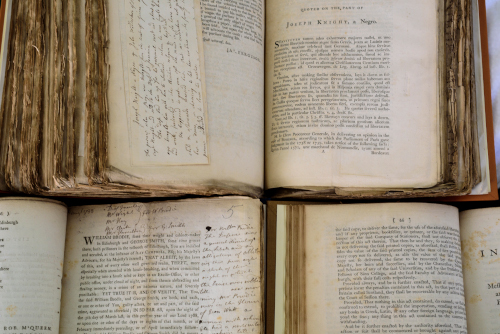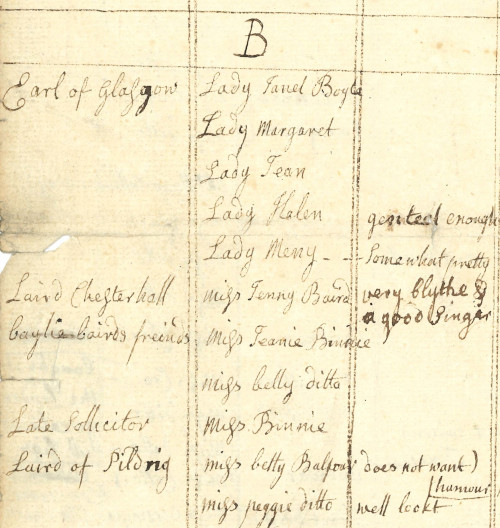Archives Hub feature for July 2021
The creation of the WS Society’s archive catalogue on the Archives Hub during the first period of national lockdown was the completion of stage two of a long-term project to remap and rehouse the records of Scotland’s oldest and largest body of solicitors. The Society of Writers to HM Signet, to give it its full name, has its origins in a fraternity of legal clerks working for the king’s secretary in medieval Scotland, and it was incorporated into the College of Justice by James V in 1532. The Society underwent reforms in 1594 and the minute book that was opened in that year is the oldest single item in the archive. Over the centuries, the Society’s lawyers have played a key role in the history of Scotland, but they were also central to the country’s intellectual and cultural development. Our archive is a map of the Society’s history – the lives and careers of generations of Scottish professionals – but it is also a map of its greatest cultural creation, the Society’s home and headquarters, the Signet Library in Edinburgh.
The archive now has its own specially adapted space within the Library, and all bound records are now recorded in the catalogue. The archive’s five centuries of unbound records have been surveyed and the task of adding them to the catalogue will be the third and final stage of the project. The Victorian deed boxes that once housed these records may be obsolete but they are also beautiful, and some are now on display in public parts of the building.
The WS Society’s archive is open to academics and post-graduate students, and to bone fide independent researchers at the discretion of the WS Society’s officers. For more details, please contact the Research Principal James Hamilton on library@wssociety.co.uk.
The Signet Library is both a building and a collection. It is one of the largest private libraries in the United Kingdom and the books, art, furniture, artifacts and ephemera that it contains are a direct and important product of and survivor of the Scottish Enlightenment. Its scholar-librarians, who include the antiquarian David Laing and the church historian Thomas Graves Law, played vital roles in the development of Scottish historiography. The Library has its own record series within the archive, mapping the growth of a major Scottish intellectual institution from the first book purchases in 1722, through the golden age of the Scottish Enlightenment to the present day.
The WS Society is a registered charity and the solicitors who are the Society’s members have always played a key role in the Scottish charitable world. In the archive are records of people who have otherwise entirely vanished from the historical record, preserved in the treasurer’s records of charitable giving. The Society ran a school for orphans in Edinburgh for 200 years – John Watson’s Institution – and early records of those entering the school are here, with evidence of family and support networks and with the (often tragic) stories that led them to the Institution’s door. A host of charities providing hospitals, homes, food and education to the less fortunate were administered by WS Society lawyers and the archive contains extensive records of these involvements.

In a building that contains both library and archive there will be materials that could be defined as belonging to either or both. One instance of this is found in the working library of the author William Roughead, Writer to the Signet and Scotland’s famous historian of true crime, which was deposited with us in 1952 along with a host of correspondence and papers. This collection is now the most heavily used part of the library and archive, and is in constant demand from journalists, television producers and academics.
Another jewel in our crown is our collection of Scottish Session Papers, printed materials used in civil court cases from 1711 onwards. All Scottish life is here – from arguments over the contents of window boxes to the records of the cases that finally ended slavery north of the Tweed – and amongst the bald legal texts can be found fascinating annotations by the lawyers themselves, beautiful hand-drawn maps, letters, and, later, photographs. These papers are the greatest untapped historical resource in Scotland and a collaborative effort to digitise the various collections of Session Papers is ongoing. Our collection was indexed during the Great War and the index has been placed online.
The WS Society has always had within it a strong social and artistic life, and the archive reflects this with records of the Society’s rifle club and militia at the one extreme (created in response to a French invasion threat in the 1850s) to records of dining societies, sporting and golf clubs (Scotland’s greatest all-round sportsman, Leslie-Balfour Melville, was a Writer to the Signet), and more recently records pertaining to the Edinburgh Festivals where the Society has provided both administrative support and a venue.
Not all of the records that the Society possesses are currently held at the Signet Library. The great collection of papers about the 1745 Jacobite Rebellion built up by the Reverend John Jardine (1716-1766) are now mostly on deposit at the National Records of Scotland, although we still hold Jardine’s astonishingly indiscreet lists of the women in Edinburgh during the ’45 and these have just been edited and published by the Scottish Record Society. Recent years have seen a long overdue recognition of the importance of business records and of the records of legal firms. In Scotland, a single law firm might serve a community for generations, and its records if properly preserved offer a unique and important window on the lives of everyone within it. But a new wave of mergers and takeovers of legal firms, along with the demise of some ancient firms with the death or retirement of the final remaining partners, has put these vital records under threat. The WS Society and Signet Library stand ready to provide advice on the preservation of such records, connections with bodies with specific expertise in the managing of such archives, and, if necessary, will provide law firm records with a permanent home.
James Hamilton
Research Principal
Society of Writers to HM Signet, Edinburgh
Related
Archive of the Society of Writers to HM Signet, Edinburgh (1594 – ongoing)
All images copyright the Society of Writers to HM Signet, Edinburgh. Reproduced with the kind permission of the copyright holders.

